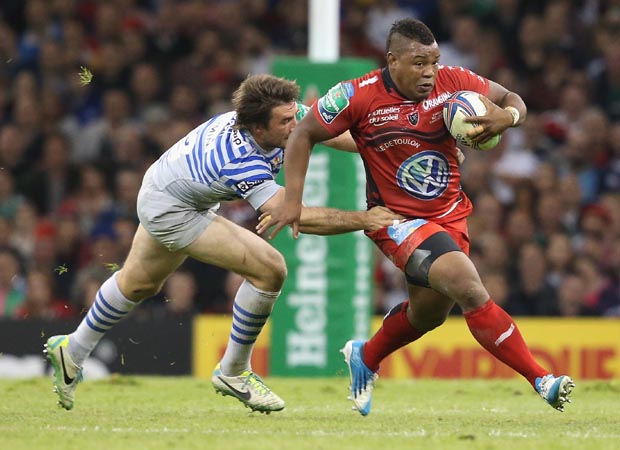 What price loyalty in rugby? That's a question that is not as easy to answer as you may think. Back in the amateur days it was relatively easy to pigeon-hole. As a player, you chose the club you wanted to play for and stayed there as long as you could play – unless you moved away for work or wanted to change clubs to improve your standard.
What price loyalty in rugby? That's a question that is not as easy to answer as you may think. Back in the amateur days it was relatively easy to pigeon-hole. As a player, you chose the club you wanted to play for and stayed there as long as you could play – unless you moved away for work or wanted to change clubs to improve your standard.
An effort was made to train twice a week, first for fitness but also out of loyalty to your teammates and the club to which you paid your subs and match fees to help maintain it for the future.
What you received in return was the use of the club's facilities (some good, some not so good) and a ready-made bunch of friends. Most of the club members and players would originate from the local area, as travel, training and playing had to be fitted around earning a living.
Social events would be organised for family and friends not associated with the club, to increase members and help the club grow. If you were lucky enough to play international rugby it would probably have been for the country of your birth or where you grew up. Yes, some players who failed to make the grade for their own country offered their services to any country that they had spurious links with, but there were not that many.
Loyalty was local but it's not anymore. Players come from all over the world and change clubs at the drop of a hat (well, at the end of a contract).
At the risk of sounding old-fashioned I must admit, I would find it hard to live in this professional age where the norm is: When you are coming to the end of your contract, your agent tells you to tell the club you have other offers and threaten to leave unless there is a new and better deal, which in a lot of cases is more than the clubs can afford.
Not that I blame players, theirs is a short career and they must make as much money as they can in a limited time. But even if a player is happy in a club, agents will always push for that ‘better deal' as obviously most work on a percentage basis.
As if that is not bad enough we now have the spectre of players choosing to change their international status and change countries, apparently with the support of the IRB.
Players who have previously represented one country are now using a so-called Olympic loophole to play for another. The Olympic loophole is the IRB's attempt at heightening the profile of a number of countries competing in the 2016 Olympics.
For some reason they seem to think that a number of past internationals playing Sevens will be more appealing to the
general public than watching specialist players who have been playing regularly on the IRB World Sevens circuit.
This effectively means that any player who has plied his trade in one country or another for three years can now apply to play for that country whether or not they have played international rugby for another country.
All they have to do is be eligible by residency, picked for this season in a country's Sevens squad and they will be eligible to apply for ‘reclassification' that will allow them to change allegiance (providing they play in four Sevens tournaments).
A number of players (including Steffon Armitage) are using this loophole in the hope that they can qualify in time for next years' World Cup. Personally I cannot understand why anyone would want to play for a country they have no loyalty to, other than that of a worker to an employer that could change at any time.
The IRB could easily ensure that there are no abuses by allowing players who change countries to play only in the IRB World Sevens and the Olympics but not in any international representative XV aside games. If that were the case it would be interesting to see how many players still wanted to make the change given that there is currently very little money in the Sevens game and the Olympic game remains an amateur competition.
At least then we could be sure that those players that choose to play are doing it for the right reasons out of loyalty to either their new home or country of birth.
Loyalty is not just the preserve of the players it is also a joint venture shared by the Unions and their supporters.
Not the financial institutions that use sport as a relatively cheap brand awareness campaign but the ordinary people who pay to watch the game week-in and week-out – the life-blood of any sport.
Those supporters deserve more than a little consideration when something like a World Cup comes to town.
As the bunfight for tickets to next year's World Cup got underway this week, something became very clear, loyalty is a one way street as far as the IRB are concerned.
The money they require from England to stage the World Cup has forced the Union into a compromise as far as ticket prices are concerned. That compromise has seen the World Cup holding company more than treble the price of category A tickets at Twickenham, where England will play most of their pool matches.
They reassure the supporters that there are cheaper tickets, which is true but most of those are for games between lesser-known teams at venues not known as rugby strongholds. Is that going to attract fans old or new? I hate to say it but if the FIRA 2014 Champions play the team regarded as Africa's second best, it is unlikely that even the most ardent English rugby fan would know who the teams were, or want to buy a ticket (Pool C Georgia vs Namibia).
England fans will want to see the England team playing at the home of England rugby – but that loyalty will cost.
*This article was first published in The Rugby Paper on September 21.




























Pingback: take a look at the site here